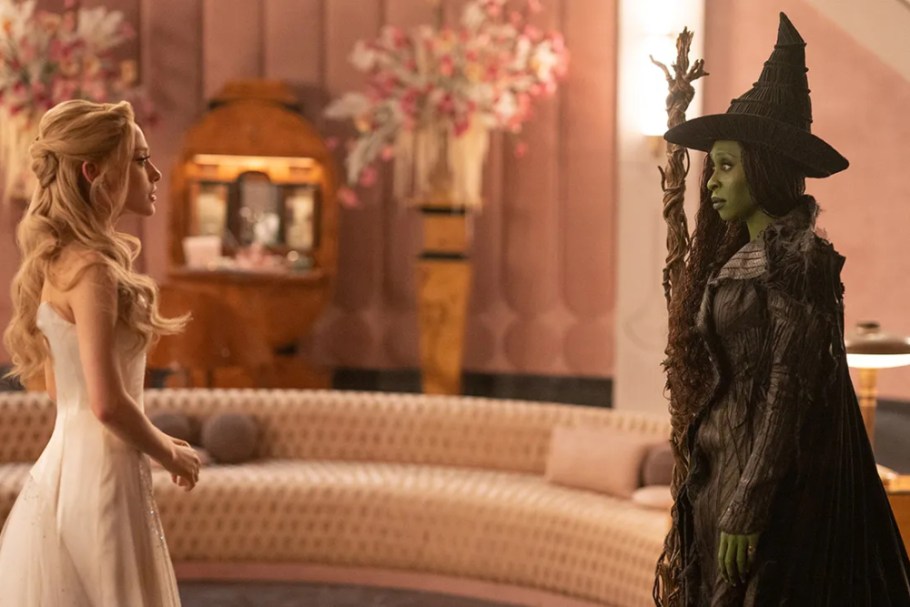For years, Hollywood observers have wondered whether movie musicals could still command serious respect on the biggest night in film. After all, the Academy has been selective in crowning musical spectaculars since the heyday of Chicago and Les Misérables. But with Universal Pictures’ highly anticipated sequel Wicked: For Good generating early waves of social media praise, some are already asking: Has the moment arrived for Oz to conquer the Oscars once and for all?
Directed by Jon M. Chu, Wicked: For Good continues the spellbinding story introduced in 2024’s Wicked, which adapted the first act of the beloved 2003 Broadway musical by Winnie Holzman and Stephen Schwartz. The first installment earned ten Academy Award nominations, impressing industry analysts who doubted a split-adaptation strategy. Now, early reactions to the sequel suggest that lightning might just strike twice, pushing the saga into that rarefied category of multi-film awards powerhouses.
A Seamless Transition Into Darker Territory
Where the first film emphasized the wonder and spectacle of Oz’s blossoming friendship between Elphaba and Glinda, Wicked: For Good steps boldly into heavier emotional terrain. The sequel examines the fallout from their diverging paths—one labeled the Wicked Witch of the West and driven into misunderstood exile, the other adored as Glinda the Good and thrust into political spotlight.
If the opening film was about discovery, the follow-up is about consequence. Early reactions from viewers invited to studio previews describe a narrative that balances sweeping fantasy with sobering reflections on power, loyalty, and the stories societies choose to believe. That thematic heft—not to mention stronger dramatic arcs—could make the sequel even more awards-friendly than its predecessor.
Jon M. Chu’s Artistic Evolution
The trajectory of director Jon M. Chu cannot be ignored. After earning praise for Crazy Rich Asians and the intricate musical choreography of In the Heights, Chu approached Wicked as his defining creative challenge. While the first chapter proved his ability to translate stage spectacle onto the screen, Wicked: For Good previews indicate a filmmaker more confident in dramatic pacing and emotional timing.
Cinematographers, editors, and orchestrators reportedly found more room to experiment. The visual language is darker, more textured, and more ambitious—traits the Academy historically rewards in categories such as Cinematography, Production Design, and Costume Design.
A Knockout Cast With Renewed Momentum
The chemistry between lead actors returns with surprising potency. Elphaba’s transformation receives more screen time, giving the lead performer room to showcase the kind of layered vulnerability Oscar voters adore. Meanwhile, Glinda’s internal conflict—balancing popularity with conscience—elevates her arc beyond glitter and charm.
Supporting players, too, have earned quiet admiration in early reactions. Several performances are being described as “scene-stealing,” hinting at potential supporting actor and actress nomination campaigns. For a musical sequel, that is no small feat.
Could Original Songs Tip the Scales?
Stephen Schwartz’s score already holds legendary status on Broadway, but fresh musical arrangements and additional emotional reprises offer new opportunities for recognition. While the Academy rules limit certain categories for sequels, there is enough expansion here—including newly composed material—to spark legitimate conversation about Best Original Song opportunities.
And if there’s one thing Oscar voters love, it’s a show-stopping anthem performed live on ceremony night.
The Two-Part Advantage
One of the biggest advantages Wicked holds is narrative distribution. By dividing the story, screenwriters had room to avoid the rushed pacing sometimes associated with stage-to-screen adaptations. The second installment functions less like a continuation and more like an emotional reveal, contextualizing motivations and exposing the darker mechanisms behind Oz’s so-called heroism.
When Academy voters evaluate structure, payoff, and cohesion, this slow-burn approach can be surprisingly powerful.
Industry Positioning and Campaign Strategy
Universal Pictures is no stranger to awards campaigning, and the studio reportedly plans to push Wicked: For Good with the same energy deployed for prestige drama contenders. With a holiday-season promotional window and a passionate Broadway-rooted fan base, voters will be encountering conversation about this film everywhere—from screenings to social feeds.
In recent years, musicals have found themselves battling franchise fatigue and shifting audience tastes. But Wicked appears to have dodged these pitfalls by leaning into character-driven spectacle rather than nostalgia alone.
What It Means for the Academy
If Wicked: For Good matches or exceeds ten nominations, it would send a strong message: ambitious musicals still belong at the Oscars. It would also complete a cultural loop, validating one of Broadway’s most iconic stories on film in a way few modern adaptations have achieved.
For an institution eager to blend mainstream appeal with artistic credibility, the Academy may find itself drawn to a project capable of energizing family viewers, theatergoers, and industry craftspeople all at once.
The Final Verdict—for Now
Of course, nothing is guaranteed in an awards season known for surprise upsets. There will be competition from historical dramas, intimate character studies, and buzzy festival darlings. But the passion emerging from early reactions reveals something hard to quantify: momentum.
If audiences connect as strongly as preview attendees did, if critics embrace the sequel’s darker complexities, and if Academy voters are in the mood to reward ambition, Wicked: For Good may indeed be the moment musicals reclaim center stage.
One thing is already clear: Oz isn’t done casting its spell.

